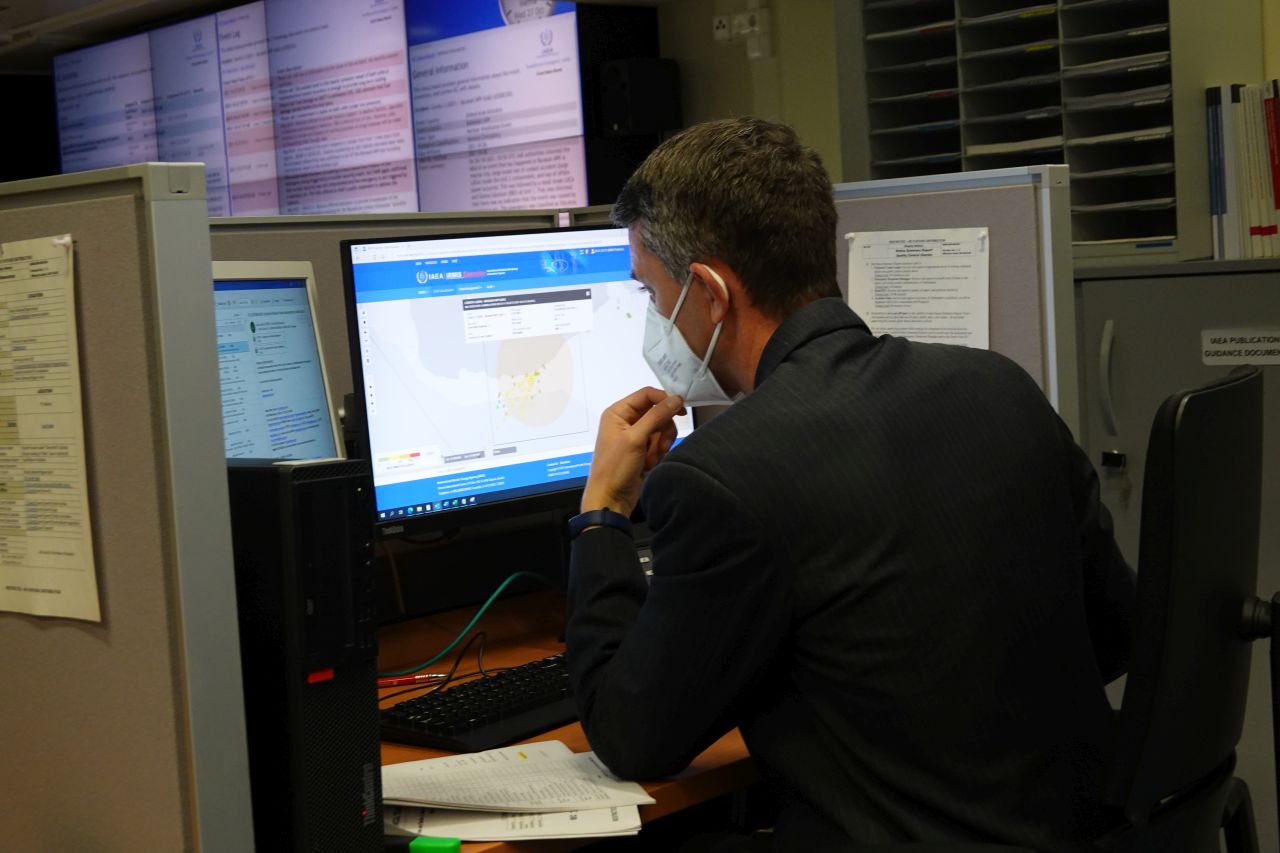JUN 20 2022
Nayana Jayarajan, IAEA Department of Nuclear Safety and Security
Countries need to work closely together in the event of a nuclear emergency, so sharing experience and improving emergency preparedness are key tasks stemming from the IAEA’s mandate. Those responsible for emergency preparedness at the national level – officially referred to as Competent Authorities – met in Vienna last week at the 11th Meeting of the Representatives of Competent Authorities identified under the Early Notification Convention and the Assistance Convention, and discussed ways to ensure that the necessary expertise, services and equipment are available promptly upon request by any government in the event of a nuclear or radiological emergency.
In his remarks, IAEA Director General Rafael Mariano Grossi referred to the role of the two conventions in relation to nuclear facilities in Ukraine. “Everything we have done to assist Ukraine in maintaining nuclear safety, security and an adequate level of safeguards; everything we have done to inform the wider world of the situation during this first military conflict fought in the direct proximity of a major nuclear power programme, we have done through the framework that many of you have built and improved in the years leading up to today…this framework is being tested like never before,” he said.
A strong and integrated international framework for notification and assistance in the event of a nuclear emergency is essential to protect people and the environment from the harmful effects of ionizing radiation, said the meeting’s Chair, Faizan Mansoor, Head of the Pakistan Nuclear Regulatory Authority. “This meeting is essential, since it gathers the world’s experts in nuclear emergency preparedness and response to determine if our arrangements remain effective when emergencies occur under increasingly complex conditions,” he said. ...
Preparing to Respond to a Rare Event
The IAEA has created a number of platforms and mechanisms, such as the Unified System for Information Exchange in Incidents and Emergencies (USIE), the International Radiation Monitoring Information System(IRMIS) and the Assessment and Prognosis Tools and the Response and Assistance Network to help countries work with each other, and with the IAEA and other international organizations, during a response. For example, USIE is a secure platform for information sharing that allows countries to fulfil their obligations under the Early Notification Convention; the same function is performed for the Assistance Convention by the Response and Assistance Network, or RANET, which allows countries to offer, and receive, assistance and expertise; and IRMIS collects and maps large quantities of environmental radiation monitoring data during nuclear or radiological emergencies.
The IAEA supports countries in setting up robust preparedness mechanisms, through the development of safety guides and publications, and the provision of trainings and other capacity-building initiatives. ...
Nayana Jayarajan, IAEA Department of Nuclear Safety and Security
Countries need to work closely together in the event of a nuclear emergency, so sharing experience and improving emergency preparedness are key tasks stemming from the IAEA’s mandate. Those responsible for emergency preparedness at the national level – officially referred to as Competent Authorities – met in Vienna last week at the 11th Meeting of the Representatives of Competent Authorities identified under the Early Notification Convention and the Assistance Convention, and discussed ways to ensure that the necessary expertise, services and equipment are available promptly upon request by any government in the event of a nuclear or radiological emergency.
In his remarks, IAEA Director General Rafael Mariano Grossi referred to the role of the two conventions in relation to nuclear facilities in Ukraine. “Everything we have done to assist Ukraine in maintaining nuclear safety, security and an adequate level of safeguards; everything we have done to inform the wider world of the situation during this first military conflict fought in the direct proximity of a major nuclear power programme, we have done through the framework that many of you have built and improved in the years leading up to today…this framework is being tested like never before,” he said.
A strong and integrated international framework for notification and assistance in the event of a nuclear emergency is essential to protect people and the environment from the harmful effects of ionizing radiation, said the meeting’s Chair, Faizan Mansoor, Head of the Pakistan Nuclear Regulatory Authority. “This meeting is essential, since it gathers the world’s experts in nuclear emergency preparedness and response to determine if our arrangements remain effective when emergencies occur under increasingly complex conditions,” he said. ...
Preparing to Respond to a Rare Event
The IAEA has created a number of platforms and mechanisms, such as the Unified System for Information Exchange in Incidents and Emergencies (USIE), the International Radiation Monitoring Information System(IRMIS) and the Assessment and Prognosis Tools and the Response and Assistance Network to help countries work with each other, and with the IAEA and other international organizations, during a response. For example, USIE is a secure platform for information sharing that allows countries to fulfil their obligations under the Early Notification Convention; the same function is performed for the Assistance Convention by the Response and Assistance Network, or RANET, which allows countries to offer, and receive, assistance and expertise; and IRMIS collects and maps large quantities of environmental radiation monitoring data during nuclear or radiological emergencies.
The IAEA supports countries in setting up robust preparedness mechanisms, through the development of safety guides and publications, and the provision of trainings and other capacity-building initiatives. ...
